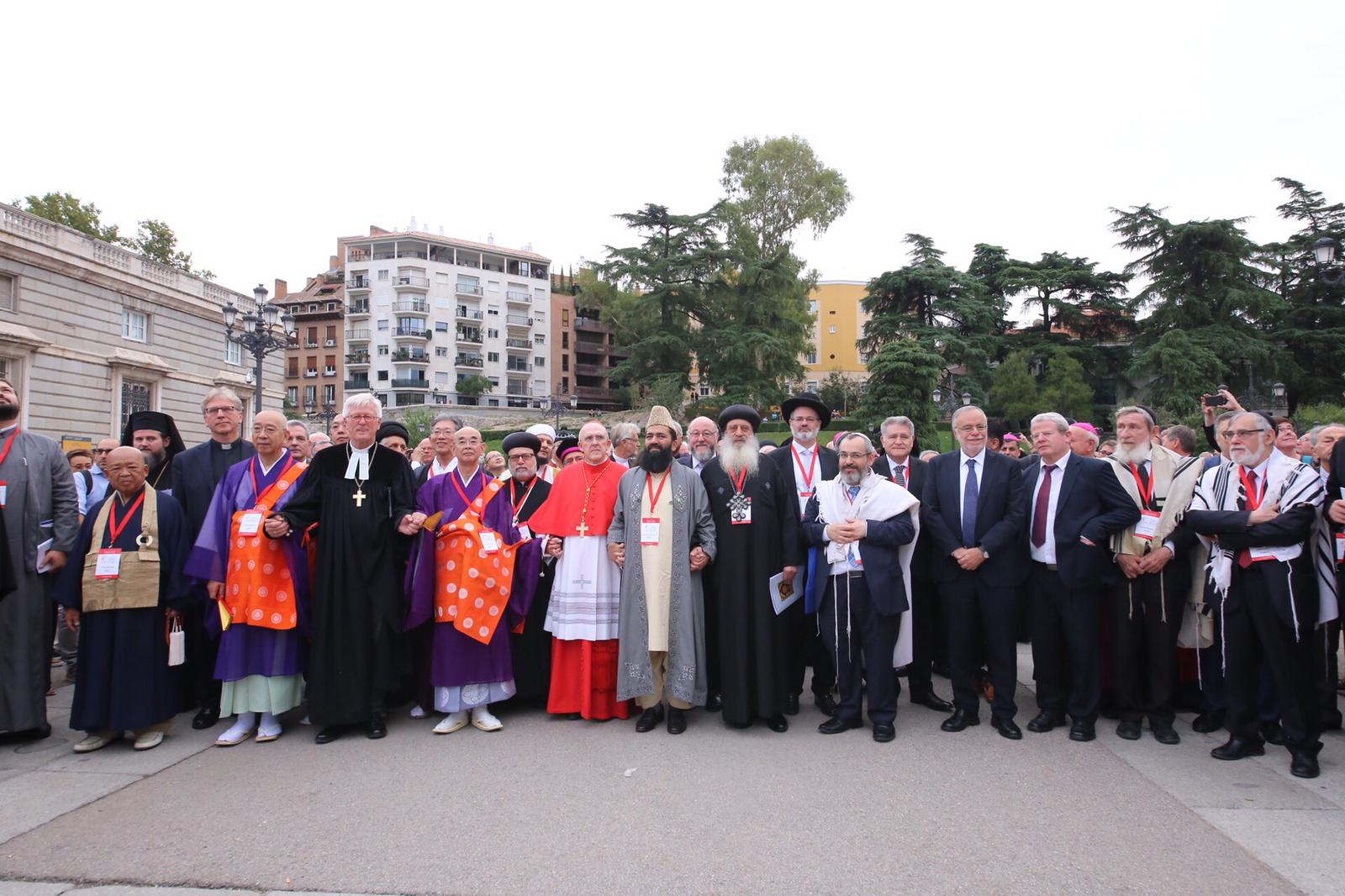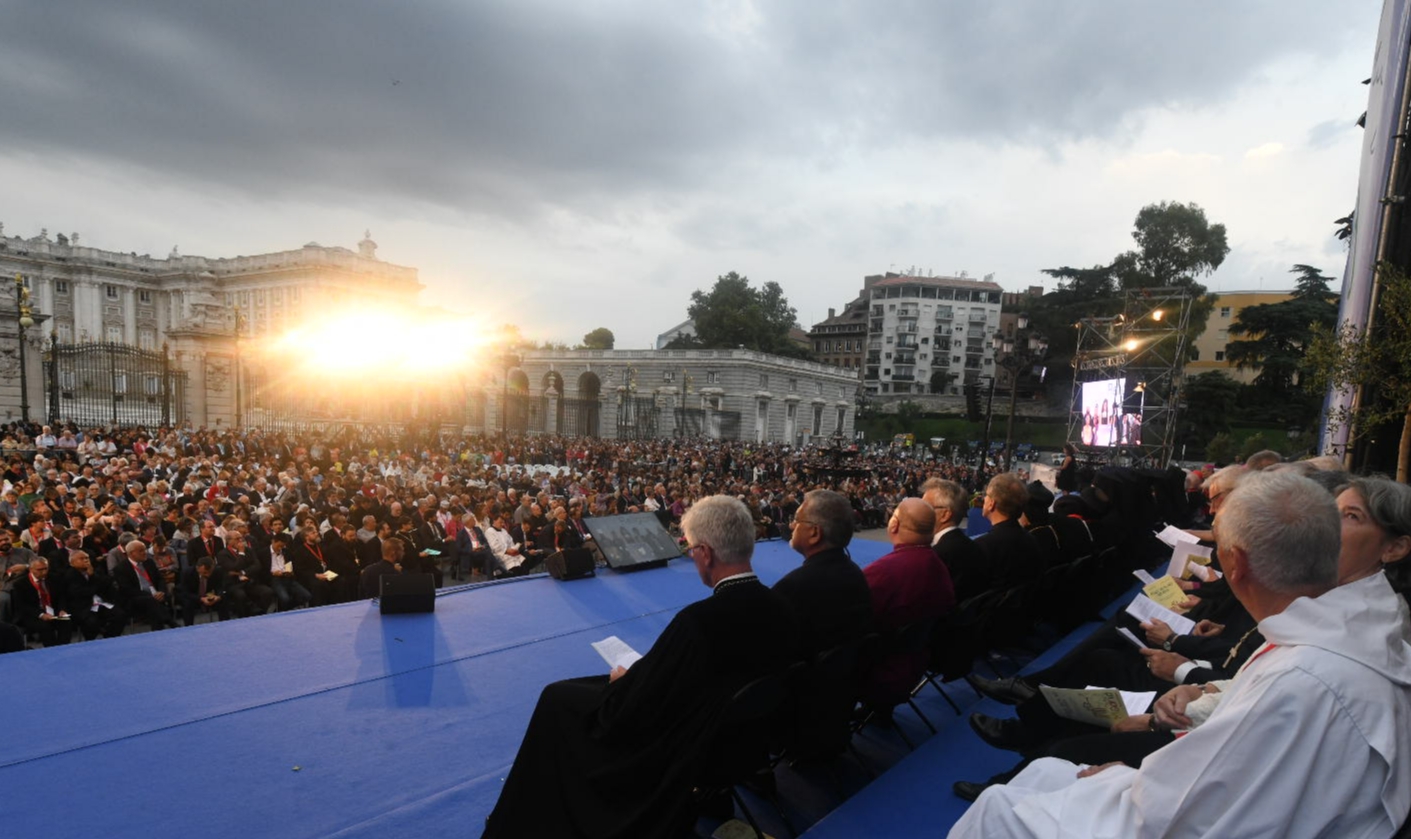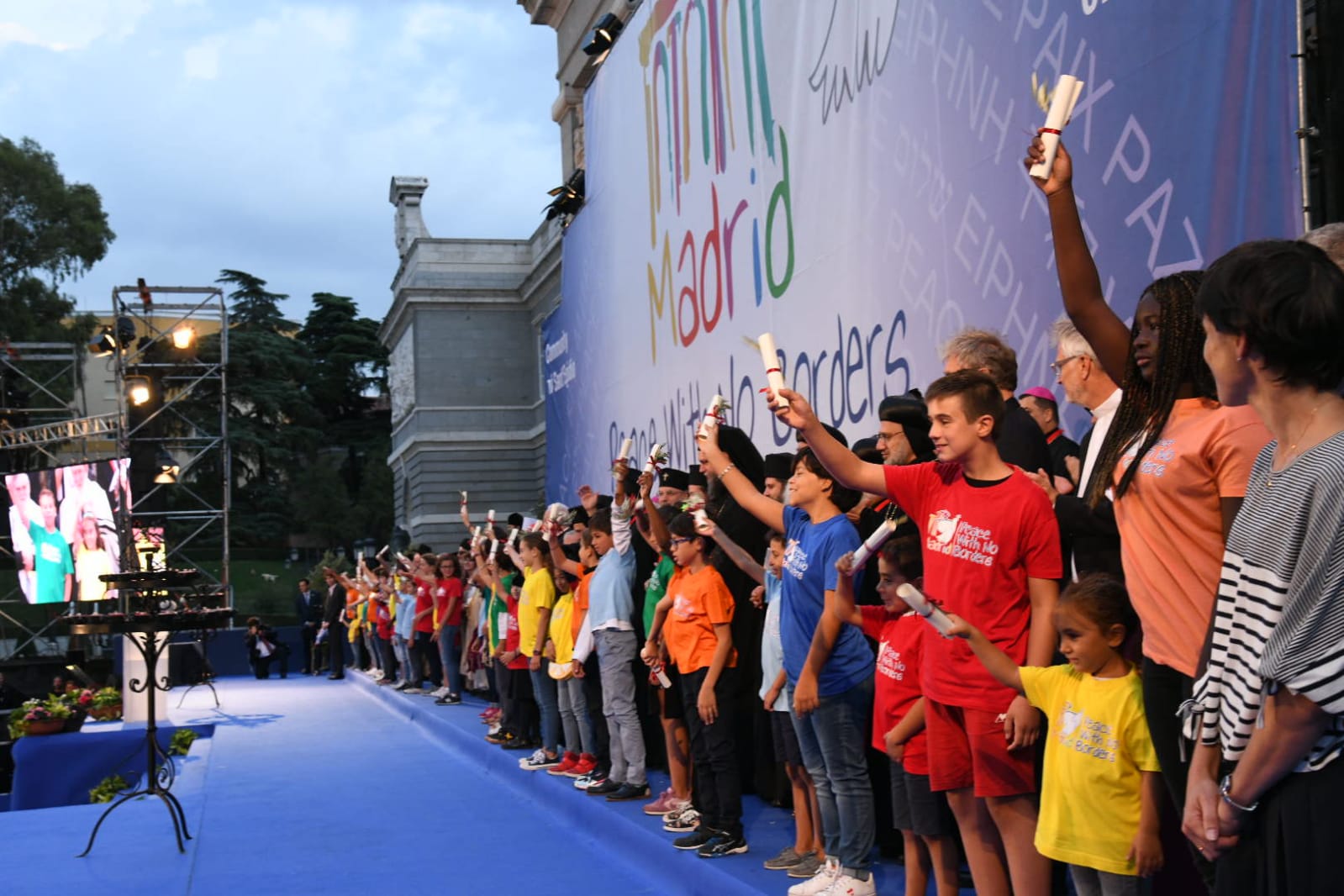Good afternoon, ladies and gentlemen.
My name is Nakata and I am here today to represent Tenrikyo.
First of all, I would like to thank the organisers of this event for inviting me to speak at this gathering.
The theme for this panel is “An Asian Century? The Role of Religions”. What does “an Asian century” mean? Does this mean that Asia has become or will be the centre of the world in the 21st century? Or is it perhaps that such a century is in doubt as we have a question mark at the end?
Although I grew up in Japan, I am not too familiar with other Asian countries. Most of my knowledge about Asian countries comes from online sources like Wikipedia, so I assume that my knowledge is not so much different from what you know about Asia. Or perhaps you may know about Japan and other Asian countries better than I do, as I am not very good at using computers or social media.
Whether or not it is an Asian century, the present time in which we live is a globalised society. If we have a smartphone, we can receive various kinds of information at any place at any time and send out even more kinds of information to the world. It is said that we are in the age of the Fourth Industrial Revolution, where artificial intelligence and robotics are expected to bring about innovations in industries.
As all of you may be fully aware, the First Industrial Revolution began in eighteen-century Britain with the rise of steam engine, which gave rise to mechanisation. The Second Industrial Revolution occurred in nineteenth century in such countries as the United States and Germany, where electricity and oil enabled mass production. The Third Industrial Revolution, which happened in the 20th century, is characterised with the advancement of automation technology as a result of the development of computers. With the Fourth Industrial Revolution, which we are experiencing now, various things are being connected via the Internet due to the development of the Internet of Things and are controlled by artificial intelligence. In the past, no matter how advanced mechanization and automation had become, human beings were the ones who controlled machines. From now on, however, artificial intelligence is said to control the machines instead of human beings, and in some fields this is already taking place.
Artificial intelligence has been featured in films since about twenty years ago, and it will probably not be long until what is portrayed in these films will become a reality. In fact in Japan, some type of self-driving cars are already being used, and there has been news that roadable aircraft is now being developed and will be out in the consumer market in several year’s time.
According to an estimate from several years ago, the artificial intelligence market in Japan is predicted to exceed 86 trillion yen (which is approximately 803 billion dollars or 727.7 billion euros) by 2030. At the same time, however, Japan’s Ministry of Economy, Trade and Industry estimated that about 1.3 million people will lose jobs in management and product planning, 2.6 million people in manufacturing and procurement, and 1.4 million people in administrative jobs. I believe this kind of trend is not exclusive to Japan and there will be more or less similar situations in other countries.
Living in this kind of society may give us lots of frustration and stress, which may develop to the point where we become completely exhausted. This may then entail a paradoxical situation where the reduced amount of workload as a consequence of the advancement of automation leads to a society in which human beings are no longer needed.
Japan has made a huge economic growth after WWII and is now seen as one of the industrially developed nations. In reality, however, there are many issues and problems in Japan. Despite being a wealthy and culturally rich country, Japan is marked with a high rate of suicide. The number has been decreasing since a few years ago, but there is still about 20,000 people who commit suicide every year. It may not be easy to capture how big this number is, but it means that there are about 55 people per day, or 2 people every one hour, who commit suicide as a consequence of suffering from mental illnesses. This means it is happening right now as we are having this meeting.
What are the roles that religious people should play in such a society? II believe that, since the time immemorial, the role of religions or religious people has always been to bring peace of mind to other people. In other words, religions may need to become a place where people who are exhausted from living in such a society can rest and have a peace of mind.
Miki Nakayama, the foundress of Tenrikyo, taught that God created the world and human beings in order to see them lead the Joyous Life, where people help one another, and share in that joy. She also taught that God continues to provide us human beings with blessings so as to allow us to realise such a world. It is because of God’s intention at the time of original human creation that we human beings feel like living a happy, enjoyable life.
An important point here is that the Joyous Life is not a kind of world where only one or a very few people live a happy life. It has to be a world where human beings help and one another, so the Joyous Life is a place where all human beings can live a happy life. God lends us the body so as to allow us to live the Joyous Life. In Tenrikyo, we are taught that everything in our body, such as the head, eyes, ears, mouth, nose, arms, legs, bones, internal organs, and blood, are things we borrow from God. We are taught that we are allowed to use our mind as our own thing. We followers of Tenrikyo believe that living the Joyous Life by using the body that is lent to our mind is the true way of living for us human beings.
Now, when do you need to borrow a pen? It is when we do not have anything to write with. A pen is designed as a tool of writing. If you, for instance, hammer a nail or eat food with a pen, the pen may get damaged or broken. Furthermore, what would the person who lent you the pen feel if you use the pen in such ways?
It is God that created our body and lend it to us. We should therefore take into consideration the purposes as to why God created us human beings and lends us the body. As I said earlier, in Tenrikyo God created human beings in order to realise the Joyous Life world. Knowing this purpose helps us realise that, although we are endowed with the free use of the mind, there is a certain orientation of the mind that we ought to maintain as we use our body.
If we use our body in a selfish way without thinking about the troubles caused to people around us, this will take us farther away from the ideal way of using the mind that is required to realise the Joyous Life so desired by God. This will then cause a damage to our body or other things around us in the form of illnesses or troubles. 。
The foundress of Tenrikyo taught us that illnesses and troubles are guidance from God.
Truly, there are no parents who hope that their children will suffer or become sad. There are times when they admonish their children severely to make sure that their children will not be led astray into a dangerous path. The foundress of Tenrikyo taught us that we should worship God just like our own parents. This is why in Tenrikyo we refer to God as God the Parent, which brings with it an intimate feeling. God the Parent, whom we consider the Parent of all human beings, shows us illnesses and troubles to make sure we will not be led astray into a dangerous path by using our minds incorrectly and thereby get back on the right track.
I suppose no one would welcome or feel happy to have illnesses or troubles, but these things can happen to anyone. We are taught about the cause of these problems through the metaphor of dusts. It is easy to remove a bit of dusts as they can be blown away. If we leave the dusts for an extended period, however, they will pile up so high to the point where we cannot sweep or wipe them off. It is the same thing with the dusts of the mind, and in Tenrikyo God teaches us that we must make efforts of removing the dusts of the mind every day. God does not say that we should not have dusts of the mind but rather urges us to sweep them away. God knows that human beings accumulate dusts of the mind as we are endowed with the free use of the mind. This is precisely why God encourages us humans to purify our minds while the dusts are still thin, just as we would clean the rooms in our house every day.
Our minds will become purified and brightened like spring water when we clean them up, which will then help us perceive things more clearly. This will then allow us to become aware of the intention of and messages from God when we have an illness or trouble. This will in turn help us keep moving forward in our lives without being depressed even in the midst of severe illness or trouble and even allow us to feel joy and gratitude. We can always find some kinds of joy in any kind of environments or situations. This way of using our minds is called “joyous acceptance” in Tenrikyo. Having the mind of joyous acceptance each day will naturally change the way we do things. The mind filled with joy will change the way we live in a way that brings joy to God, which will then help us take steps forward toward the world where we can receive abundant divine blessings.
As such, changing the orientation of the mind can make anything possible.
To put it differently, what is important for human beings is how we maintain the orientation of our minds. I said earlier that our body is a thing we borrow from God the Parent. It is our minds that use the body. Human beings have discovered, invented, and used various things by using our body. As I mentioned earlier, these things include steam engine, oil, electricity, computers, and artificial intelligence, but may also include the use of fire if we think about when it was first discovered. There will certainly be new kinds of inventions in the future, too. Each of these things is a wonderful discovery and invention, but it is up to human minds as to how we use these inventions. Even if everything is connected through the Internet, a wrong use of the mind may not lead us to the Joyous Life so desired by God the Parent.
It is my belief that we should continue to play the role of connecting people’s minds with the intention of God.
Thank you very much for your kind attention.





